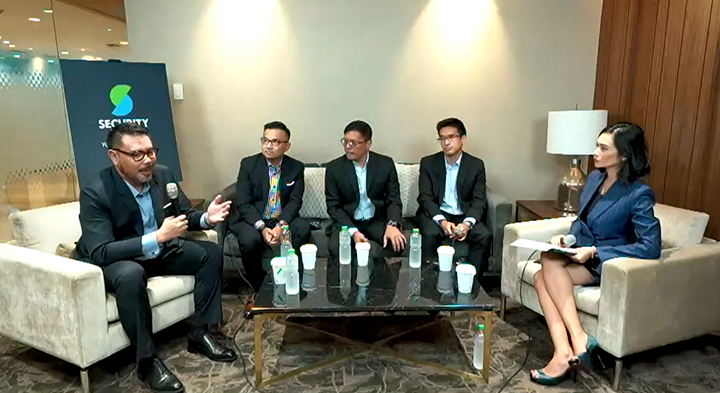
Invest when markets are weak and fearful—that’s the key takeaway from Security Bank’s Trust and Asset Management Group (TAMG) in its recent webinar to clients, where the Bank’s investment experts talked about the trends changing the investment market and how Filipinos can benefit from it.
Aptly titled “Almost on solid ground”, the webinar focused on the group’s view of the year’s economic events and how Filipinos can take advantage of current events to grow their hard-earned money, including insights on the Ukraine-Russia War, high inflation, and the looming global recession.
The webinar began with a detailed discussion on inflation and opportunities for growth, with the inflation rate in the Philippines at a year-to-date high of 6.1%. Investment expert and Head of Fixed Income Securities Dino Aquino sees this as the best time to look into fixed income investments—there is a high probability that in a year’s time, inflation will have lowered with the BSP’s most recent tightening moves, and the money invested will have a higher value.
“If you buy a fixed income asset at 7% now and inflation drops to four to five percent next year, you are basically holding paper with a positive carry, and you can even have the option to sell it at a gain. Once inflation subsides or is controlled, fixed income investments purchased a year before would have increased in value,” said Aquino.
Recovery seen in the economy
The group saw that the Philippine economy was very positive, with the performance of the GDP during the start of the year—giving a concrete signal that the economy is almost on solid ground. This in return also became the premise of the Bangko Sentral ng Pilipinas to sustain a gradual rate hike trend initially for the year.
The group also anticipated scenarios in their February 2022 webinar that could become black swan events that would shake the economy. A few months later, these events crept into the markets and led to an impending global recession.
Despite the positive outlook towards the start of the year, Security Bank Chief Economist Robert Dan Roces noted several headwinds that contributed to the sudden change in economic outlook for the economy.
“The Russia-Ukraine war is a black swan event that no one saw coming, this led to the exacerbation of global inflation as the global supply chain was disrupted. We are seeing inflation, we are seeing central banks react to it, and we are seeing commodities essentially creeping to the households already as they are feeling the pinch and producers are also beginning to complain as the costs to production have also come up,” said Roces.
A looming global recession
While many countries have started to recover from the pandemic, the yield curve continues to be inverted in the US, given rising inflation, and this is leading to a looming global recession as global demand is affected. The higher US Dollar rates in return has affected the spending power of the country as the Philippine currency is pegged to the US$ which is adding on to inflation considering that we are a net-importing economy of major commodiites.
“However, the impact of the global recession to the country would be very different now as there are currently two factors that are different. On one hand, the Philippines continues to exhibit a strong re-opening and is projected to grow better than our ASEAN neighbors. Secondly, we are largely a consumption driven economy and not trade dependent, and this consumption is supported by strong OFW and BPO flows, as well as heightened Government spending. While inflation will have some net effects to it, we are optimistic that the country will not be affected as much,” he added.
Security Bank Chief Investment Officer Noel Reyes meanwhile sees the investment climate to be currently on a wait-and-see scenario and remains pretty much liquid. Investors will be on the prowl and will look for areas of investment with high returns and yields.
“While the market remains liquid, we are expecting for inflation to peak at the third quarter and when that happens, we can see a positive tone in both the fixed income and equities markets as this liquidity gets deployed,” said Reyes.
Overall, the group is optimistic on the economy in the second half. Factors such as a more stable peso, peak remittances, consumption season in the fourth quarter, and the support of the monetary authorities to curb inflation while maintaining its growth bias, will be beneficial to the local economy and ensures it moves to a more solid ground.
“Recent trends have been showing global commodity prices settling in a new, lower range; possibly back to around the levels they were at before Russia invaded Ukraine. This should provide some inflation relief in the fourth quarter going into 2023. We also expect local factors to soften external headwinds, stemming from the wider Covid-19 booster rollouts resulting in sustained looser mobility curbs, which will likely show a stronger than expected consumption recovery. This mitigates the impact from inflation, rate hikes, global growth slowdown, and should improve business and consumer confidence,” according to Roces.

